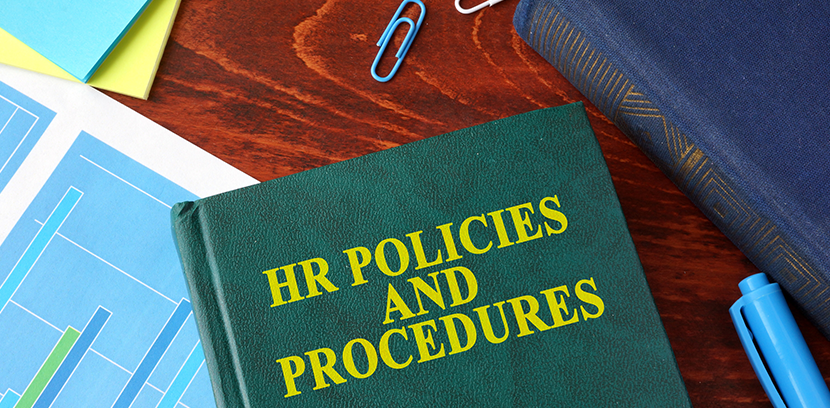How to Withdraw a Job Offer After a Background Check

The Fair Credit Reporting Act (FCRA) says that individuals have a right to access the background information stored on them, no one can access it without permissible purpose (such as employment), and they can dispute any information that is wrong. Adverse action procedures are specific in protecting these consumer rights. With the rise in FCRA compliance claims, employers are doing their best to follow regulations during adverse action procedures, including rescinding a job offer.
When a hiring manager finds an arrest or conviction on a background check, what is the best way to withdraw the job offer and remain FCRA compliant?
How to Withdraw a Job Offer After a Background Check:
Arrests or Convictions on Background Checks
After running a criminal background check on a job applicant, the report may reveal arrest or conviction records. Arrest records differ from convictions because not every arrest leads to a conviction. Convictions are when the person was found guilty of the accused crime. The individual may have also been convicted of a crime but then the crime was later expunged, sealed or dismissed. If charges were dismissed or there is a warrant for an arrest, these will also likely be found on a criminal background check. Under Federal Law, (State FCRA law may differ), arrests can only show for seven years, whereas convictions can show indefinitely. These records will be verified, when working with a professional background screening company such as VeriFirst, and therefore can be trusted as true unless the candidate reveals otherwise. Your screening provider should adhere to both Federal and State FCRA regulations when verifying and returning background check records.
Assess the Crime
The next question to consider is if the crime would prevent the candidate from getting the job. The EEOC is very particular about assessing an individual's criminal history. If the fact that the applicant has an arrest or conviction on the background check leads to an automatic withdrawal of the job offer, this may violate Title VII of the Civil Rights Act of 1964. An arrest must be considered, especially if the crime was recent and could affect the potential employment responsibilities of the individual.
Certain states may also specify how to handle arrest and conviction records of an individual, including waiting until after the job is offered before running a background check. The EEOC issued guidance to use when assessing the criminal activity discovered on a background screening. The hiring manager must individually assess the record to determine if:
- it relates to the responsibilities of the job
- how recently the crime was committed
- the nature or gravity of the crime
The point of the assessment is to not make a sweeping statute against anyone with a mark on their criminal background check. To create more consistency in examining criminal history, it is suggested that hiring managers create and use an EEOC Background Check Decision Matrix.
Pre-Adverse Action
Pre-adverse action is when the hiring manager informs the candidate that something negative came back on their background check that may cause adverse action or the withdrawal of the job offer. The notification is sent to the applicant along with other required information:
- Copy of the background check report
- Copy of "A Summary of Your Rights Under the Fair Credit Reporting Act"
- Contact information of the consumer reporting agency (CRA) or screening company
- Reasonable period of time to dispute the findings of the report
Although it's not specified, five (5) days is a typical "reasonable period of time" for allowing the applicant to review and dispute any false or misleading information on their background check report. If they do not dispute the information, the hiring manager is then free to pursue adverse action.
Adverse Action
When rescinding the job offer, the employer must still follow the rules of the FCRA. An adverse action notice must be sent in writing to the applicant with the following information:
- Notification that the job offer is withdrawn due to the results of the background check
- Contact information of the consumer reporting agency (CRA) or screening company
- Notification that the CRA or screening company did not make the decision to pursue adverse action and will not have an explanation for the adverse action
- Notification that the applicant can request a free second copy of their background check report within 60 days
- Notification that the applicant can still dispute the results of the background check report
The process to rescind a job offer should be well documented in case the applicant chooses to dispute the adverse action decision. The employer will be able to show consistency in their hiring practices and how they are not widely discriminating against those with any criminal history. Federal and state laws aside, the employer must show that they were fair, and that they remained in communication with the candidate during the process, including allowing them access to their background check information.
 If you have more questions about FCRA or EEOC compliance around hiring practices, contact our FCRA certified staff to help.
If you have more questions about FCRA or EEOC compliance around hiring practices, contact our FCRA certified staff to help.
Share this
You May Also Like
These Related Stories

Background Screening Compliance for Employers

Is Your Screening Policy Compliant with Background Check Regulations?

